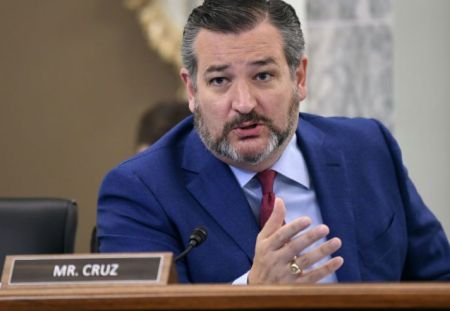What Texas gets right should be a lesson for D.C. when it comes to passing laws that encourage Innovation & Competition in the AI landscape
By Megan Mauro
Texas Insider Report: AUSTIN, Texas — Over the past several years, we’ve seen an explosion in companies offering new, innovative applications of artificial intelligence (AI), which has taken on a central role in disrupting the world’s technology landscape.
Established technology giants and emerging start-ups together fuel AI’s advancement. Increasingly, the future is being driven by ‘Little Tech’ – the small, entrepreneurial start-ups serving unique customers in specific markets that have become ever-important in today’s dynamic economy alongside those of larger firms.
 Regardless of the sector in which they find themselves, today all businesses have effectively become tech businesses. From boutique companies run out of a garage to the ‘Magnificent 7’ global tech giants, the same principle applies: embrace new ways to enhance efficiencies, solve problems, and reach new customers, or risk falling behind the competition.
Regardless of the sector in which they find themselves, today all businesses have effectively become tech businesses. From boutique companies run out of a garage to the ‘Magnificent 7’ global tech giants, the same principle applies: embrace new ways to enhance efficiencies, solve problems, and reach new customers, or risk falling behind the competition.Here in Texas, our policymakers understand this principle better than most, and our state leaders know that the winning formula for helping small businesses get ahead is to keep the government’s role to a light regulatory touch, particularly as businesses are scaling up.
With our state’s favorable regulatory climate, no personal income tax, no corporate income tax, and a slew of recent pro-business reforms that have made starting and growing a business here even more attractive, it’s no surprise that ‘Little Tech’ creators have found a haven for growth in Texas. In fact, an economic impact study last year found that, since 2017, a whopping 52% of our state’s job gains have come from information technology and custom software services.
Austin, in particular, has earned the nickname ‘Silicon Hills’ because it boasts more than 5,500 start-ups and tech companies working to address novel challenges across a range of industries including health care, retail, government, energy, military, transportation, aerospace, and beyond.
The proliferation of unrivalled tech talent combined with future-minded investors is why we’re home to world-renowned technology incubators like Capital Factory, Tech Ranch, and the Army Applications Laboratory.
The proliferation of unrivalled tech talent combined with future-minded investors is why we’re home to world-renowned technology incubators like Capital Factory, Tech Ranch, and the Army Applications Laboratory.
Innovators in Texas also saw a major win this session when the Texas Legislature created a 36-month ‘regulatory sandbox’ program that provides companies with regulatory flexibility to test AI systems in controlled environments. This allows smaller technology companies to experiment with cutting-edge AI applications free from onerous, unnecessary red tape that stunts growth and, in many cases, could be a death knell for small, fast-growing tech start-ups.
While our state’s position on forward-thinking AI policy is encouraging, the prospect of conflicting state and federal laws still poses an existential challenge for many ‘Little Tech’ creators trying to scale at the national and global levels.
 What Texas gets right should be a lesson for Washington when it comes to passing laws that encourage innovation and competition the in AI landscape.
What Texas gets right should be a lesson for Washington when it comes to passing laws that encourage innovation and competition the in AI landscape.Building on the vision laid out in the White House’s new AI Action Plan released this summer, Senator Ted Cruz has introduced the SANDBOX Act, giving AI developers “space to test and launch new AI technologies without being held back by outdated or inflexible federal rules,” while simultaneously including safeguards to protect consumers against fraud and risks to health and safety.
Proposals like these are exactly what the newly formed Texas Chapter of the American Innovators Network (AIN) will be looking toward as we bring together entrepreneurs, builders, and creators from across the state to ensure ‘Little Tech’ has a prominent seat at the table in shaping smart, sustainable policy around AI, and in charting a course for the future of American technology.
At the same time, we recognize that the biggest breakthroughs often happen when start-ups, scale-ups, and established tech leaders collaborate, combining fresh perspectives with proven expertise to accelerate responsible innovation throughout Texas.
At the same time, we recognize that the biggest breakthroughs often happen when start-ups, scale-ups, and established tech leaders collaborate, combining fresh perspectives with proven expertise to accelerate responsible innovation throughout Texas.
At the state level, Texas is already demonstrating the right approach in empowering ‘Little Tech’ to innovate and grow. We hope our federal leaders take a similar approach in ensuring all tech companies have the right tools and regulatory environment to help solve the most challenging and intractable problems that businesses and institutions across the spectrum face today.
 Megan Mauro is the Vice President & Chief of Staff for the Texas Association of Business (TAB), and also serves as the Texas Chapter President of the American Innovators Network (AIN).
Megan Mauro is the Vice President & Chief of Staff for the Texas Association of Business (TAB), and also serves as the Texas Chapter President of the American Innovators Network (AIN).























